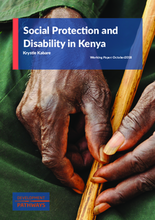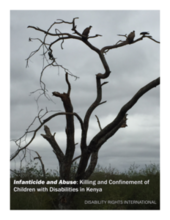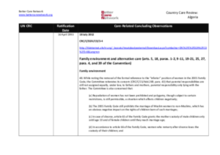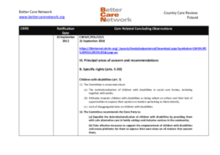Displaying 211 - 220 of 477
This study sought to find out the current numbers of autistic Looked-After children formally recorded across local authorities in England, and whether their needs are given special attention via strategic planning and oversight, using Freedom of Information (FoI) requests sent to all local authorities in England.
In this study, the authors explored the needs of families of children with cerebral palsy in Bangladesh. Such understanding is important as it will help to improve services for children with disabilities and their families.
The main goal of this article was to explore the correlates of mental health diseases in a sample of 169 children with intellectual disability (6–18 years old) in residential care in Spain compared with a group of 625 children, also in residential care but without disability.
This report provides insights into the current situation in Kenya regarding the inclusivity of social protection for people with disabilities.
In the present exploratory study 69 case-files of children referred to a Dutch national center for residential youth care for children with intellectual disabilities (ID) were analyzed to assess the prevalence and associations of Adverse Childhood Experiences (ACEs).
This report is the product of a two-year investigation by Disability Rights International (DRI) into institutions and orphanages across Kenya. The report describes the "egregious human rights violations" perpetrated against children with disabilities in Kenya, particularly those who are confined to institutions and "orphanages."
This country care review includes the care-related Concluding Observations adopted by the Committee on the Rights of the Child and the Committee on the Rights of Persons with Disabilities.
This country care review includes the care related Concluding Observations adopted by the Committee on the Rights of the Child and the Committee on the Rights of Persons with Disabilities.
The purpose of this paper is to critically reflect on the conditions and context of deinstitutionalization and the process of transformation of the institutions for children with behavioural problems from several key aspects: current offer of treatment programs and interventions in institutions and communities, competences of professionals in transformation process, research related to needs and risks of children and education of future professionals.
This study tests the associations of risk and protective factors on mental health outcome variables of youth in foster care with disabilities.




